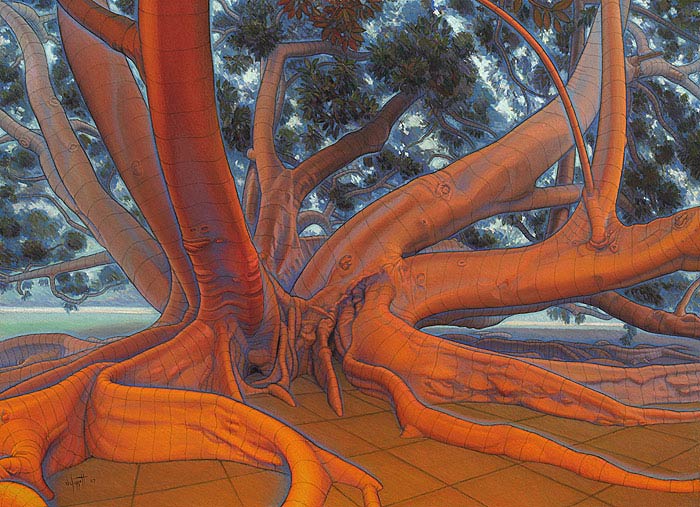
| Prev | Gallery 3 - One Moreton Bay Fig Tree Project |
More Details | Home Page Menu / Back To Gallery Page

73 cm (w) x 53 cm (h), pastels and charcoal on acid-free paper.This was produced mainly on-site. With this piece, I tried to produce a strong expression of the tree’s forms, using all of the line work, the tones, and the colours used. Local colours are largely ignored. The colouring used is an exaggerated aerial perspective, where surfaces that are close to me are made more orange (to bring them forward), and surfaces that are more distant are made more blue (to send them back further). I have also tried to indicate the air that surrounds the forms using pale blues around the forms. I have applied these same principles of colour to the ‘forms’ within the canopy, but kept its tone dark, to help enclose the scene - as it feels in reality. Contour lines indicate the cross-sectional shapes of the forms, the orientation of surfaces to the viewer, and set up ‘rhythms of flow’ within the depictions of forms. These lines are ‘felt’ from looking at the real forms and are considered by me to be extremely important for the accurate expression of the forms experienced. Even though Moreton Bay Fig trees have a texture in their bark that often provides rings around their forms, there are many places where those natural rings are not what is required for the expression of the forms, especially at junctions. The contour lines need to be drawn with high accuracy, and with quite a bit of experimentation. The end result is felt, to see if it expresses the forms closely to the way they ‘feel’ in reality. This drawing took more than 3 and a half months to complete, working for most of that time directly from the tree. It was done over a period of more than a year, in several groups of sessions. I worked on getting the piece finished late in 2006, before moving from North Adelaide. The overall tone was darkened a little, and the colour work refined. I put in about 8 days of work in mid May 2007, back in my new studio (away from the tree), cleaning up parts of the whole drawing. I am very happy with this piece. It is a reconstruction of the scene that was experienced, into a new 2-dimensional image. There was a lot of extremely accurate observation and line work required in the accurate expression of the forms encountered. The colours and tones are based on how the forms were felt rather than on a ‘photographic’ description. I am confident that I have achieved an accurate depiction that contains a good level of the vitality felt when one experiences such a magnificent natural form. |
A photographic view of the subject tree in 2006 from a similar direction to that used for the pastel above: |
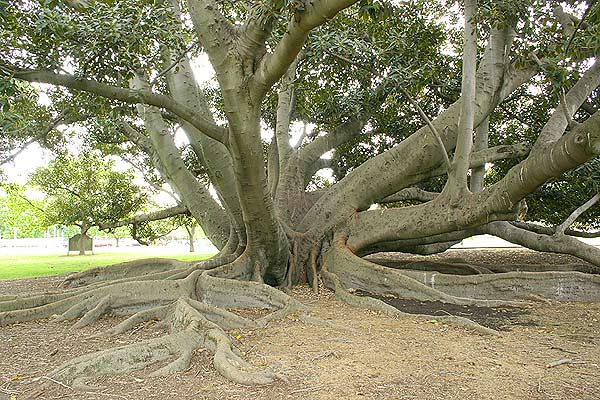
Direction of viewing point shown on a map of the buttress roots and main lower boughs: |
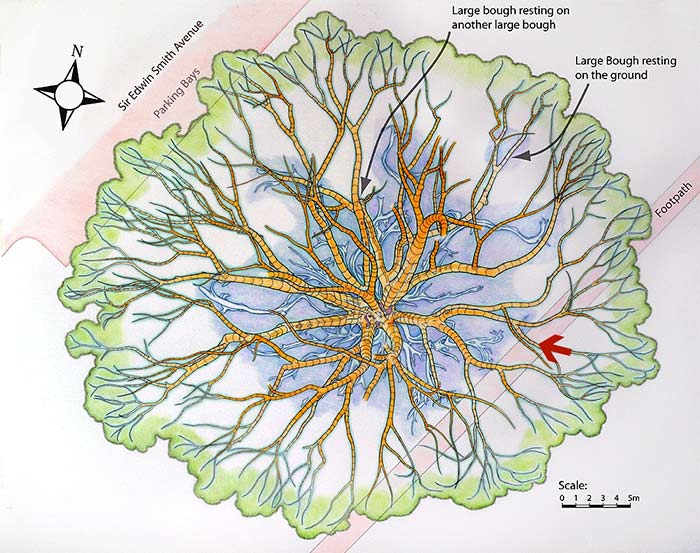
This map and the previous photograph are provided to help you to understand and/or appreciate the pastel more. Because this pastel was drawn mainly on-site, if you go to the real subject tree with this display on your mobile phone or tablet, it is possible using this map of the tree to find the real place where the pastel was produced from. If you attempt to do this, please remember that I was sitting on a camp stool to do this pastel, and the tree has changed since 2006 (but typically changed only a little). |
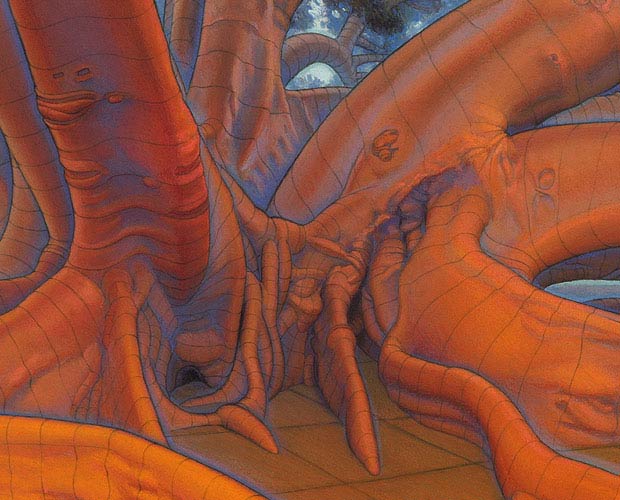
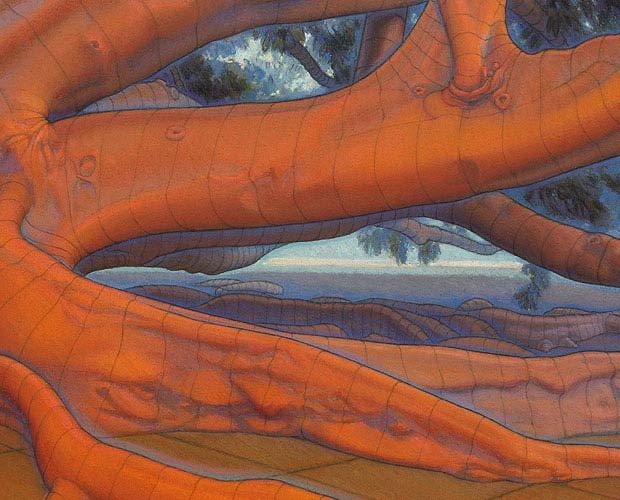
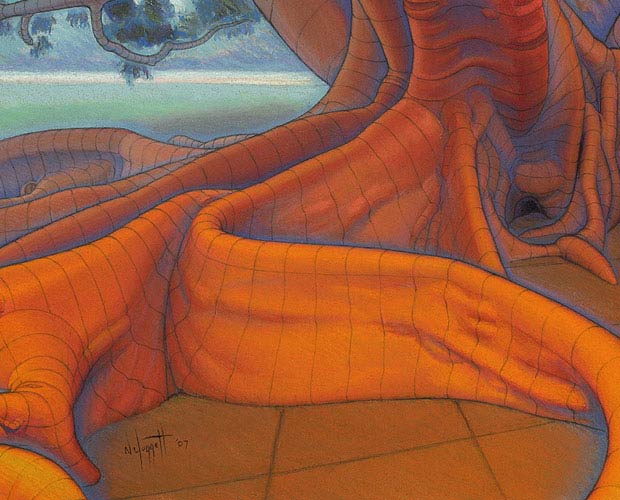
More Details | Home Page Menu / Back To Gallery Page
| Prev | Gallery 3 - One Moreton Bay Fig Tree Project |